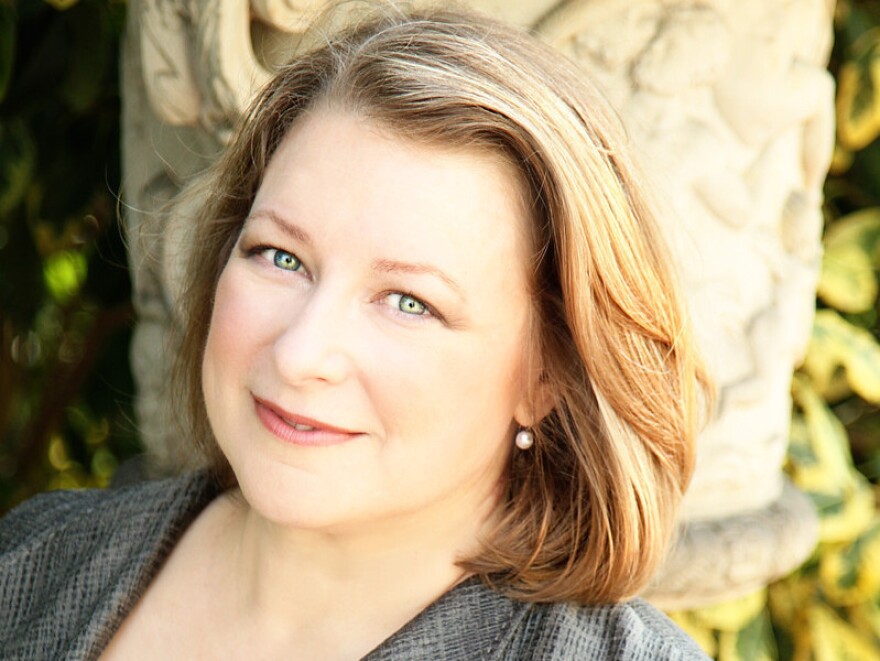The first book in the All Souls trilogy, A Discovery of Witches, was a tour de force, an artful and unusually skilled blending of hard science, history and the supernatural. Deborah Harkness, a historian of science at the University of Southern California, was the perfect person to pull off a mix that some readers called "Harry Potter for intellectuals."
If you haven't read it, here's a primer: A reluctant witch, Diana Bishop, the descendant of Salem witches, rejects her supernatural ancestry and becomes a historian. Holed up in the Bodleian Library at Oxford, Diana is suddenly hounded by witches, daemons and vampires after she asks to see an alchemical text, Ashmole 782 — which turns out to be both long-lost and strangely magical.
Her life threatened, Diana teams up with Matthew Clairmont, an Oxford geneticist who also happens to be a 1,500-year-old vampire. This is the beginning of a sprawling adventure that combines the supernatural with discussions of Darwin, genetics, fine wines (Harkness writes a wine blog), and much more. The first volume ends with a cliff hanger as the two, now a couple, flee into the past, into Elizabethan England.
Shadow of Night starts where A Discovery of Witches left off; Diana and Matthew land at Matthew's house in Woodstock, England, in the year 1590. We are among a huge assortment of historical figures: Queen Elizabeth, Christopher Marlowe and Walter Raleigh, just to mention a few.
The quest to find Ashmole 782 — and to find witches who can train Diana's growing and unruly abilities — leads them to France, as well as to the court of the Holy Roman Empire in Prague. And at nearly 600 pages, the book is so complex that there is a list of 85 characters at the end. Thirty-seven of them are known historical figures, though Harkness has granted supernatural abilities to a few of them. Christopher Marlowe is a daemon; others are human, like Queen Elizabeth and George Chapman, the poet whose verse "Shadow of Night" provides the book's title.

The book is too complex at times, with so many characters, although anyone with a huge interest in Shakespearean England will find a host of fascinating details and descriptions.
Since Matthew is a Catholic in Protestant England, and Diana is a witch at the same time that witches are being executed in Scotland, both are on perilous, constantly shifting ground. Matthew in the 16th century is not as liberated as he was in the 21st, and their marriage has some rocky moments. In addition, they face emotional upheaval after meeting important relatives from their past who are long dead in the modern world — not to mention the danger of changing that past through their actions.
When the couple finally comes across Ashmole 782, it is for too short a time to truly penetrate its secrets, but the few things Matthew and Diana learn are so deeply disturbing and unexpected that my own wavering over this sequel ended. I am now eager to read the last installment. But given the complexity of Shadow of Night, when the finale appears in a year, I will be sure to spend a few hours reminding myself of what happened in the two previous books before I dare open its pages.
Copyright 2023 NPR. To see more, visit https://www.npr.org.



